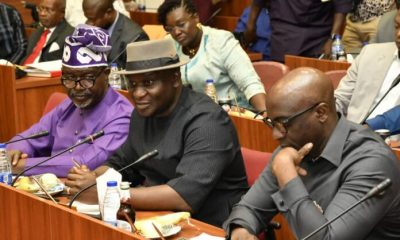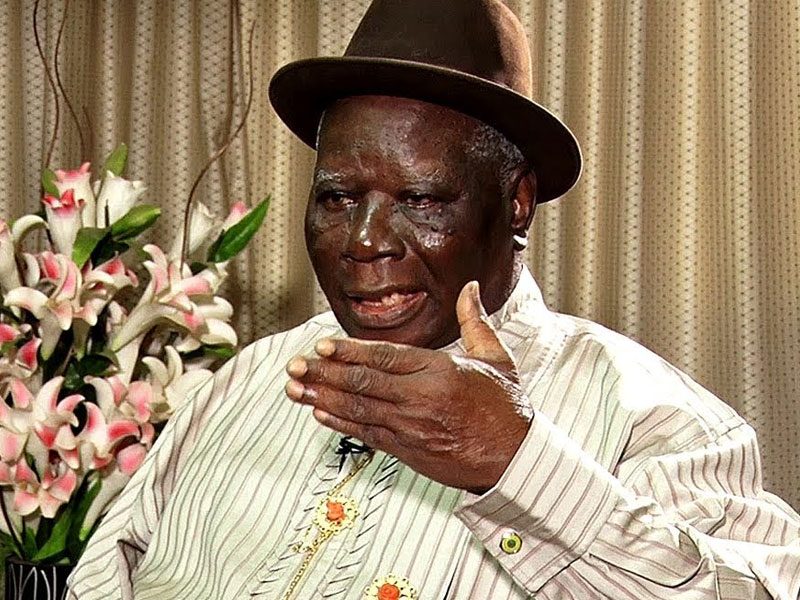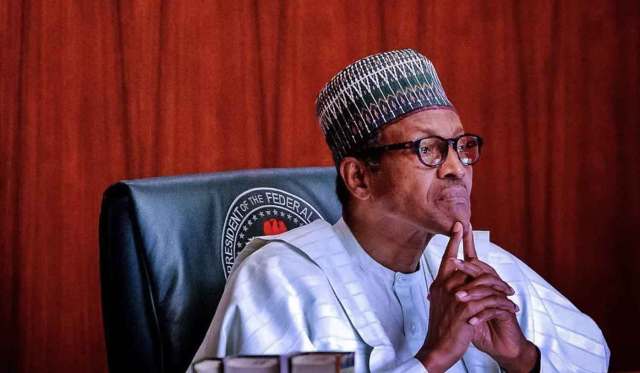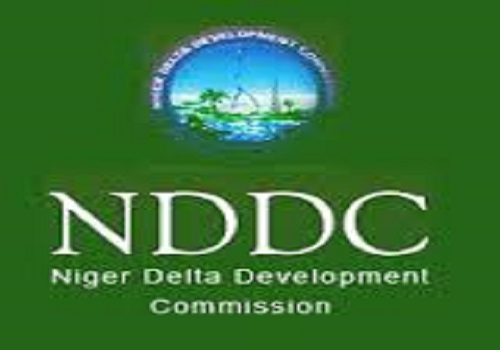News
Amazing: Niger Delta governors squander N10trillion
Published
8 years agoon
By
Olu Emmanuel
• Group moves to block 13% derivation fund
From PRINCE MONDAY WHISKEY, Regional Editor, South South
IN addition to spending their federal allocation running into trillions of naira in the last 16 years, the Niger Delta governors have reportedly also shunted over N10 trillion of the derivation funds for the region’s oil-producing communities.
Community Development Committee (CDC), a grassroots pressure group in the south-south, stated this at the weekend, joining the calls for reforms in the management of the 13 per cent derivation allocation to the nine states producing oil.
According to the group: “Henceforth, the federal government should suspend the payment of 13% derivation funds to the Bayelsa, Rivers and Akwa-Ibom for deliberately refusing to create oil commissions in those states.”
ALSO SEE: Niger Delta oil pipeline attacks: Manifest of likely suspects
Mike Okereme, chairman, BoT, of the CDC said after their meeting in Warri: “They are denying the people the benefits and privileges associated with oil and gas production from their area.”
The facts of the deprivation are everywhere. Various reports have established the oil producing communities in the Niger Delta, from where Nigeria gets 80 % of its forex earnings, have the lowest Human Development Index compared to similar communities in Saudi Arabia, Kuwait, and other oil-exporting countries.
Infrastructure and social services, according to a UNDP report, are generally deplorable, and vastly inadequate for the estimated population of 30 million people living in about 14,000 settlements across the region.
The Gross National Product in the south-south is below $280 per capita, which is the national average.
In Rivers, the report says, the cost of living is higher than elsewhere in the country. For instance, only 12 % of its residents have access to good sanitation. Yet the state ranks among the top 10 beneficiaries of Federal allocation in Nigeria.
But, Okereme further said that for states that already have oil commissions like Ondo, Delta, Edo, Abia and Imo, the federal government should henceforth pay directly the approved percentage as reflected in the law of such oil state commissions.
He argued that there are grey areas in the receipt of the derivation fund because of the joint accounts operated between the states and local governments.
ALSO SEE: Foreign investments inflow in oil sector decline by 85.7% by 2015
To make the position of the law clearer, however, the BOT chairman said the Revenue Mobilisation, Allocation, and Fiscal Commission which established the derivation fund should ensure that no state, using federal account allocation or its joint account with local government is able to divert what is released.
He revealed that some governors, using creative accounting schemes have opened joint accounts through they share money with established oil-producing development development commissions.
Investigations however revealed that apart from Delta which allocates 50% of the derivation fund to the Delta State Oil Producing Areas Development Commission (DESOPADEC), other governors are not so generous.
For instance, Ondo allocates 40 % to the Ondo State Oil Producing Areas Development Commission (OSOPADEC), Edo allocates 40%, Abia, 35%, and Imo, 35%.
But in 2012, when the derivation agitation began, Elias Mbam, chairman of the RMAFC, told a group that the governors were mismanaging the fund using their control of the state-local government joint account.
“The 13 per cent derivation from monthly allocation extended to oil producing states ought to be exclusively spent on oil producing communities as, being hosths, they suffer most from the impact of environmental degradation occasioned by oil exploration in their domain,” he said.
ALSO SEE: Oil & Gas: Expert tasks operators on importance of transparency
The commission later sent a bill to the sixth National Assembly to address the loose ends of the law setting up the fund. The effort is yet to yield any positive result.
It was also discovered that the alleged misappropriation has particularly been up for about four years now, generating waves of anger among the oil producing communities.
Ijaw leader Edwin Clark lent his voice to the agitation in 2012, when the total derivation fund still stood at over N7 trillion.
He told a group of oil-producing communities how greed was driving the Niger Delta governors to steal the funds exclusively meant for oil-producing areas.
“Section 162 (2) of the constitution which provides for the payment of derivation fund did not say that the payments should be made through any state government,” the elder statesman said.
He then suggested the federal government pay directly to the communities.
A similar proposal was made in 2013 when about 89 community leaders from Ondo, and 30 from Delta separately petitioned the 2013 National Conference over the abuse of that fund by the governors.
According to them, the derivation fund is not part of any fiscal allocation to the states or local government areas. “It is standing on its own to the credit of the oil and gas producing communities as a first charge on the Federation Account,” they said.
They then proposed a couple of changes: the establishment of a National Derivation Committee, NDC, and State Derivation Committee, SDC, in all the nine states.
The NDC would directly supervise the fund from the Federation Account to the State Committee.
Members of the two bodies would be nominated from among the communities, and be appointed by the president for four years. A representative from the RMFAC would be on the committee, too.
ALSO SEE: Shell halts investment in Nigeria, sacks 10,000
“These Committees shall formulate, design and implement policies, programme and projects sourced from the actual oil and gas producing communities. Two of the nominees shall be executive Chairman and Secretary,” they wrote in the proposal.
And like the RMFAC bill, the proposal might have ended up in the shelf.
Three years after, the governors still have their fingers in the derivation till, as though the agitated communities were merely banging their heads against a brick wall.
Sharing Nigeria’s oil money has been a vexed issue among the oil-producing communities since the military era.
Former military President Ibrahim Babangida jacked up the lot belonging to the oil-producing areas, from the 1.5% peg during the second republic, to 3%. He also established the Oil and Mineral Producing Areas Development Commissions (OMPADEC).
After the 1994 Constitutional Conference, the late head of state, Gen. Sani Abacha, took it up to the 13% notch. By 1999, when Gen. Olusegun Obasanjo was elected president, the implementation took a different approachpaying directly to states.
The Obasanjo administration did away with OMPADEC and brought on the Niger Delta Development Commission (NDDC) .
But over the long haul, going by the rising discontent the derivation is creating, none of these commissions seems to have been able to ease the suffering of the oil-producing communities.
So another fuse of resource struggle might just be ticking away.
You may like


Senate knocks FG, IOCs over non remittance of N1trn debt to NDDC


NDDC: Fractured but unbroken


Clark urges Buhari to constitute a substantive board for NDDC


FG set to release white paper on NDDC forensic audit report


Check out full list of new NDDC 16 board members, their portfolios
Lagos lawyers file first ever suit against NASS, AGF, RMFAC over federal lawmakers’ jumbo pay
Trending

 Football6 days ago
Football6 days agoGuardiola advised to take further action against De Bruyne and Haaland after both players ‘abandoned’ crucial game

 Aviation7 days ago
Aviation7 days agoDubai international airport cancels flights as flood ravages runway, UAE

 Aviation1 week ago
Aviation1 week agoNCAA suspends three private jet operators for engaging in commercial flights

 Featured4 days ago
Featured4 days agoPolice reportedly detain Yahaya Bello’s ADC, other security details

 Comments and Issues5 days ago
Comments and Issues5 days agoNigeria’s Dropping Oil Production and the Return of Subsidy

 Education5 days ago
Education5 days agoEducation Commissioner monitors ongoing 2024 JAMB UTME in Oyo

 Business5 days ago
Business5 days agoMaida, university dons hail Ibietan’s book on cyber politics

 Education7 days ago
Education7 days agoOsun NSCDC solicits cooperation towards national assets protection

